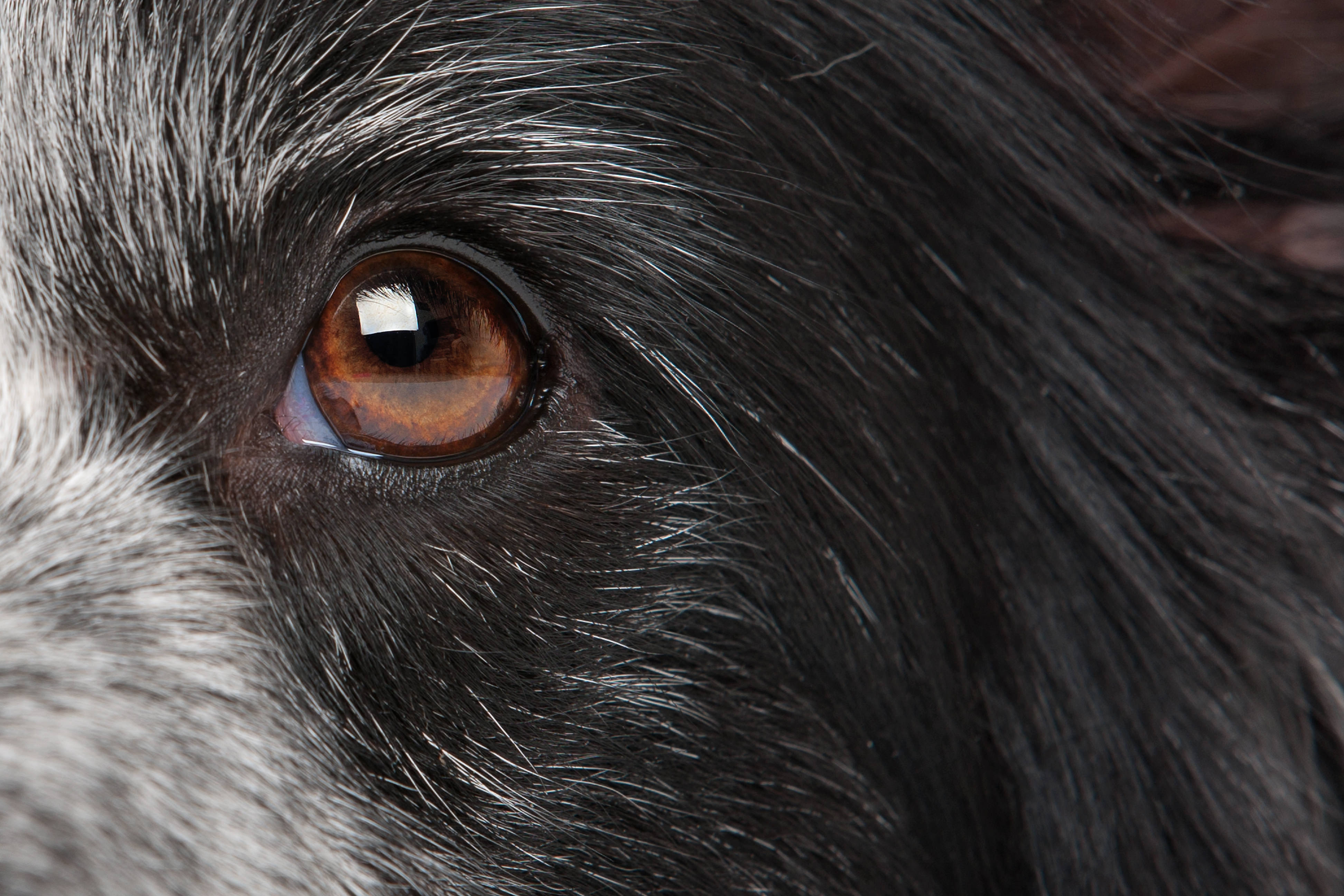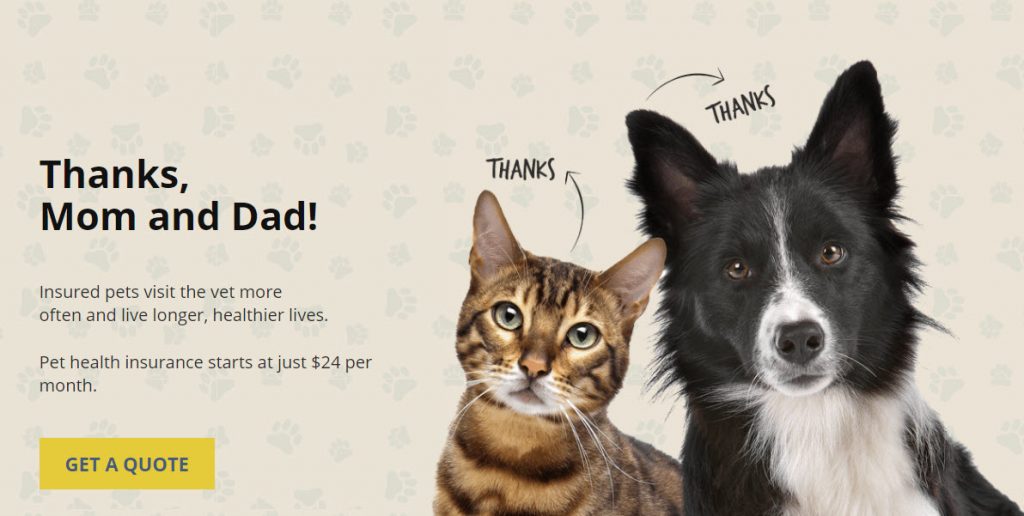Collie Eye Anomaly In Dogs
Free Pet Insurance Comparison
Compare Quotes From Top Companies and Save
Secured with SHA-256 Encryption

Dr. Pippa Elliott BVMS, MRCVS
Veterinarian
Dr Pippa Elliott BVMS, MRCVS is a veterinarian with over 30 years of experience in companion animal practice. In 1987 she graduated from the University of Glasgow, with a degree in veterinary medicine and surgery. She works at Blythwood Vets and the People’s Dispensary for Sick Animals (PDSA). Pippa is an advocate of Fear-Free Practice, an animal addict, and a veterinary writer. She is also w...
Veterinarian
UPDATED: Feb 3, 2025
Pet Insurance U receives compensation from the third parties included on this site. This includes payment for clicks from our site to insurance providers’ sites and quote requests generated. Our rankings and reviews are not affected by payments from the insurance companies. The compensation we receive allows the site to be free and regularly updated. Our goal is to review every pet insurance provider, but not all companies are listed on the site.
And many of the companies we review do not pay us anything. We simply rate, compare and review their plan because we feel it will be valuable to you. Our reviews are guaranteed to be unbiased, professional and advertising compensation does not influence rankings.
We are a free online resource for anyone interested in learning more about pet insurance. Our goal is to be an objective, third-party resource for everything pet insurance related. We update our site regularly, and all content is reviewed by pet insurance experts.
UPDATED: Feb 3, 2025
Pet Insurance U receives compensation from the third parties included on this site. This includes payment for clicks from our site to insurance providers’ sites and quote requests generated. Our rankings and reviews are not affected by payments from the insurance companies. The compensation we receive allows the site to be free and regularly updated. Our goal is to review every pet insurance provider, but not all companies are listed on the site.
And many of the companies we review do not pay us anything. We simply rate, compare and review their plan because we feel it will be valuable to you. Our reviews are guaranteed to be unbiased, professional and advertising compensation does not influence rankings.
On This Page
Collie Eye Anomaly in dogs is a congenital, inherited eye defect that occurs when mutated chromosomes impair the development of the blood vessels that nourish the retina.
The retina, sclera, and choroid of both eyes are typically affected, making it a bilateral condition, or one that occurs on both sides of the body.
Collie Eye Anomaly also referred to as Collie Eye Defect, can also cause retinal detachment.
As the name suggests, Collies are most often affected by this eye disease.
Need Pet Insurance?
FACT: Pet insurance pays up to 90% of vet bills when your pet is sick or injured!
Breeds Affected By Collie Eye Anomaly
- Border Collies
- Australian Shepherds
- Shetland Sheepdogs
- Lancashire Heelers
- Herding Dogs
While there are virtually no symptoms with the disease until it is too late, your veterinarian can diagnose the condition through genetic testing.
Related: 10 Things You Must Know Before You Buy Pet Insurance
Enter your ZIP code below to view companies that have cheap pet insurance rates.
Secured with SHA-256 Encryption
Symptoms Of Collie Eye Anomaly
- No symptoms may be present
- Later stages may bring on associated eye conditions
- Final stages may be blindness
Associated Conditions Of Collie Eye Anomaly
Microphthalmia
- The eyeballs are smaller than normal.
Enophthalmia
- The eyeballs are sunken in their sockets because the connective tissue of the cornea has become mineralized and looks like a cloud over the eyes.
Retinal Folds
- When the layers of the retina aren’t formed together properly.
Real Cost Savings from PetFirst Clients

Luna
PetFirst saved his parents
$6,712
A happy energetic Luna one morning couldn’t hold her food down. After months of multiple costly vet visits to specialists and an endoscopy, the problem was discovered and fixed. Luna put 22 pounds back on in no time and her parents were grateful for having PetFirst by their side to pay the bills.
Collie Eye Treatment

For some related eye defects, like coloboma, surgery can help reduce the effects of this disorder. Laser surgery is the most common choice.
Another type of eye surgery, called cryosurgery, uses extreme cold to prevent detachment of the retina or further deterioration of the eye.
Surgery might also be able to help reattach the retina if necessary.
Enter your ZIP code below to view companies that have cheap pet insurance rates.
Secured with SHA-256 Encryption
What Causes Collie Eye Anomaly
This defect only affects dogs that have a parent that carries the genetic defect of mutation.
The parents might not even be affected by the chromosomal defect even if they carry it. But, the litter of such parents could carry the mutation and have the effects of the disease.
Other genes might also play into this chromosomal defect which is why not all collies are affected.
Diagnosis
This test can be done when your dog is a puppy which is always recommended.
The most common sign is retinal detachment and if caught in the early stages, the disease can be prevented or the symptoms minimized.
If collie eye is detected, it won’t worsen unless it has reached the stage of coloboma, which can be a fold in the retina, iris, optic disc or lens.
The size of the hole can be very little and not affect your dog’s vision.
However, if the hold is larger it can lead to blindness and/or retinal detachment.
If coloboma is found, your vet will need to monitor the condition. Some puppies might develop pigment around the affected area but the eyes will still look normal.
Pet Insurance Can Help With Collie Eye Anomaly
If you have a collie or any of the herd dogs that are prone to this condition, early eye exams of your puppy in the first six to eight weeks of your puppy’s life is highly recommended.
Pet insurance can be very helpful to cover many of these costs, even if your puppy or dog doesn’t yet have the condition.
Pet insurance can help with not only the cost of testing and all the medical bills for this disease but also any related eye conditions that might occur.
We recommend Healthy Paws as the #1 pet health insurance provider!
Fetch Rates With Healthy Paws!
Enter your ZIP code below to view companies that have cheap pet insurance rates.
Secured with SHA-256 Encryption
Managing Collie Eye
If your puppy is diagnosed with coloboma in his or her first year, it’s important for your vet to look to see if there is also a retinal detachment. If not after a year, your puppy should be OK.
As with any eye condition, your dog should be monitored carefully for any of the related eye conditions in puppyhood throughout your dog’s adult life.

How Do You Prevent Collie Eye Anomaly?
There is really no way to prevent the occurrence of collie eye anomaly in dogs. If a dog does carry the mutated chromosome, it should not be bred with other dogs to produce offspring.
If however, an adult has a mild condition, there is a chance it would be passed along to her offspring.
The good news is that your dog can live a long, fulfilled life even with the disease. And it has little or no effect on your dog’s lifespan. Even if your dog loses his or her sight completely, he or she can live a fulfilled life.
Return to the Dog Health Problems glossary.
Other articles you may find helpful:
Is Exotic Pet Insurance Necessary?
The Best Pet Insurance By State
Fun Facts, Dog FAQ, And Unsolicited Dog Advice
5 Training Commands to Save Your Dog’s Life
The Ultimate Guide to Safe Foods for Dogs
We get it, your dog is like your child and when your puppy or dog has health problems it is scary. Luckily there is pet insurance companies that will help you pay for any veterinarian care they made need. Checkout the best puppy and dog pet insurance companies and learn about common puppy health issues and ailments in older pets.
Common Health Problems:
Chronic Active Hepatitis in Dogs
Cruciate Ligament Tear in Dogs
Degenerative Myelopathy | Spinal Cord Disease In Dogs
Dementia in Dogs | Canine Cognitive Dysfunction
Dog Comedones (Schnauzer Bumps)
Dog Diarrhea: What Can You Do To Help?
Gallbladder Obstruction in Dogs
Heart Murmurs In Dogs | How To Identify Them
Intervertebral Disc Disease In Dogs
Nasal Solar Dermatitis In Dogs
Progressive Retinal Atrophy In Dogs
The Dog Flu – Symptoms & Treatment for Canine Influenza
Frequently Asked Questions
What is Collie Eye Anomaly, and how does it affect dogs?
Collie Eye Anomaly (CEA) is a congenital, inherited eye defect that affects dogs, particularly Collies. It impairs the development of blood vessels nourishing the retina, leading to bilateral conditions affecting both eyes. CEA can also result in retinal detachment.
Are there specific breeds more prone to Collie Eye Anomaly?
Yes, as the name suggests, Collies are most often affected by this eye disease. While other breeds may also be affected, Collies are particularly prone to Collie Eye Anomaly.
What are the symptoms of Collie Eye Anomaly, and how is it diagnosed?
CEA may not exhibit symptoms until it’s too late. Veterinary diagnosis is often through genetic testing, especially in breeds prone to the condition. Retinal detachment is a common sign, and early detection is crucial for prevention or symptom minimization.
Can Collie Eye Anomaly be treated, and what are the possible treatment options?
Treatment options for CEA-related eye defects include surgeries like coloboma, laser surgery, and cryosurgery. These aim to reduce the effects of the disorder, prevent retinal detachment, or reattach the retina if necessary.
What causes Collie Eye Anomaly in dogs?
CEA is caused by a genetic defect or mutation. Dogs with a parent carrying the genetic defect may be affected, even if the parent shows no signs. Other genes may also contribute to this chromosomal defect, explaining why not all dogs of susceptible breeds are affected.
How is Collie Eye Anomaly diagnosed, and can it be detected in puppies?
Diagnosis often involves testing when the dog is a puppy. The most common sign is retinal detachment, and early detection allows for preventive measures or minimizing symptoms. Monitoring is essential if coloboma is present.
Can pet insurance help with Collie Eye Anomaly and related conditions?
Yes, pet insurance can be beneficial in covering the costs associated with testing, medical bills, and treatments for Collie Eye Anomaly. It can also cover related eye conditions that may occur.
How can Collie Eye Anomaly be managed, especially if detected in a puppy?
If coloboma is detected in a puppy’s first year, the vet should check for retinal detachment. Regular monitoring for related eye conditions throughout the dog’s life is crucial.
Can Collie Eye Anomaly be prevented, and what should dog owners be cautious about?
Prevention involves not breeding dogs carrying the mutated chromosome causing CEA. If an adult has a mild condition, there’s a chance it could be passed to offspring. However, dogs with CEA can lead fulfilling lives, and it has minimal impact on lifespan.
Is there any way to prevent Collie Eye Anomaly in dogs?
While there’s no guaranteed prevention, avoiding breeding dogs with the mutated chromosome is crucial. If an adult has a mild condition, there’s a chance it could be passed to offspring. However, dogs with CEA can lead fulfilling lives.
Enter your ZIP code below to view companies that have cheap pet insurance rates.
Secured with SHA-256 Encryption
Dr. Pippa Elliott BVMS, MRCVS
Veterinarian
Dr Pippa Elliott BVMS, MRCVS is a veterinarian with over 30 years of experience in companion animal practice. In 1987 she graduated from the University of Glasgow, with a degree in veterinary medicine and surgery. She works at Blythwood Vets and the People’s Dispensary for Sick Animals (PDSA). Pippa is an advocate of Fear-Free Practice, an animal addict, and a veterinary writer. She is also w...
Veterinarian
We are a free online resource for anyone interested in learning more about pet insurance. Our goal is to be an objective, third-party resource for everything pet insurance related. We update our site regularly, and all content is reviewed by pet insurance experts.
